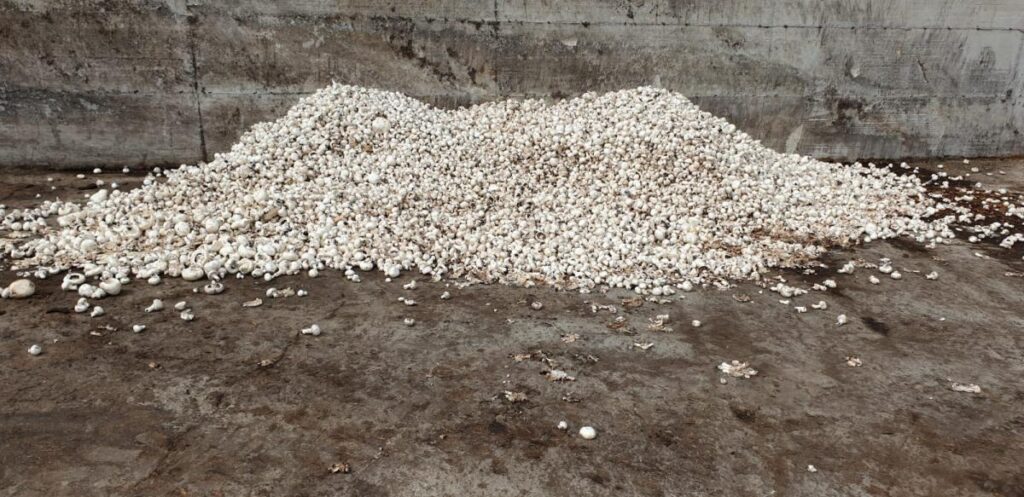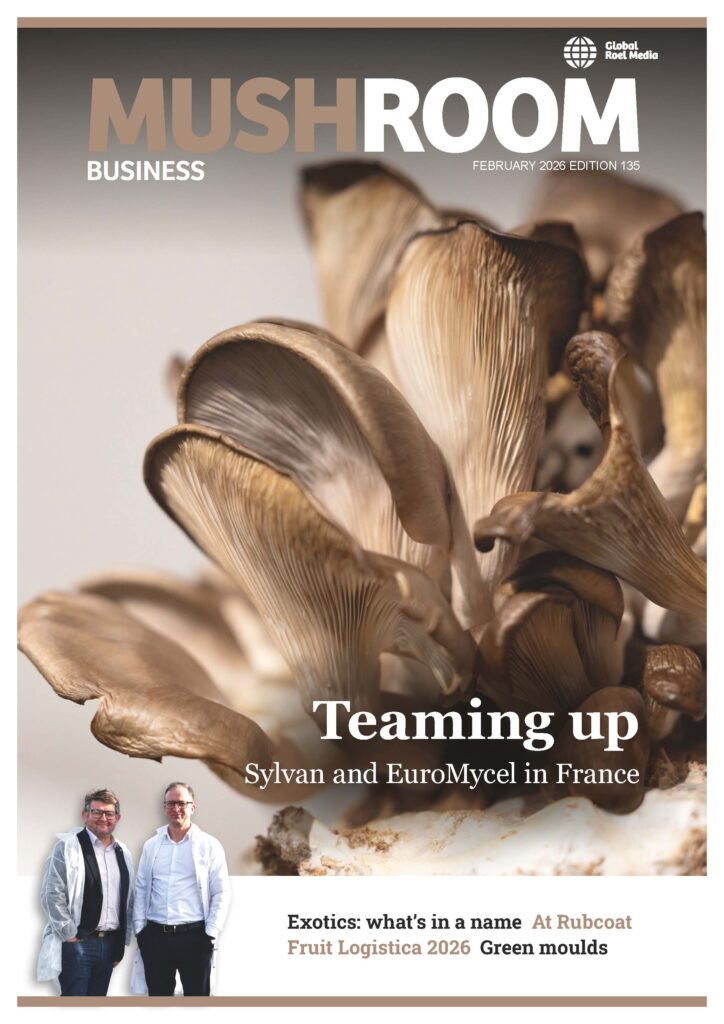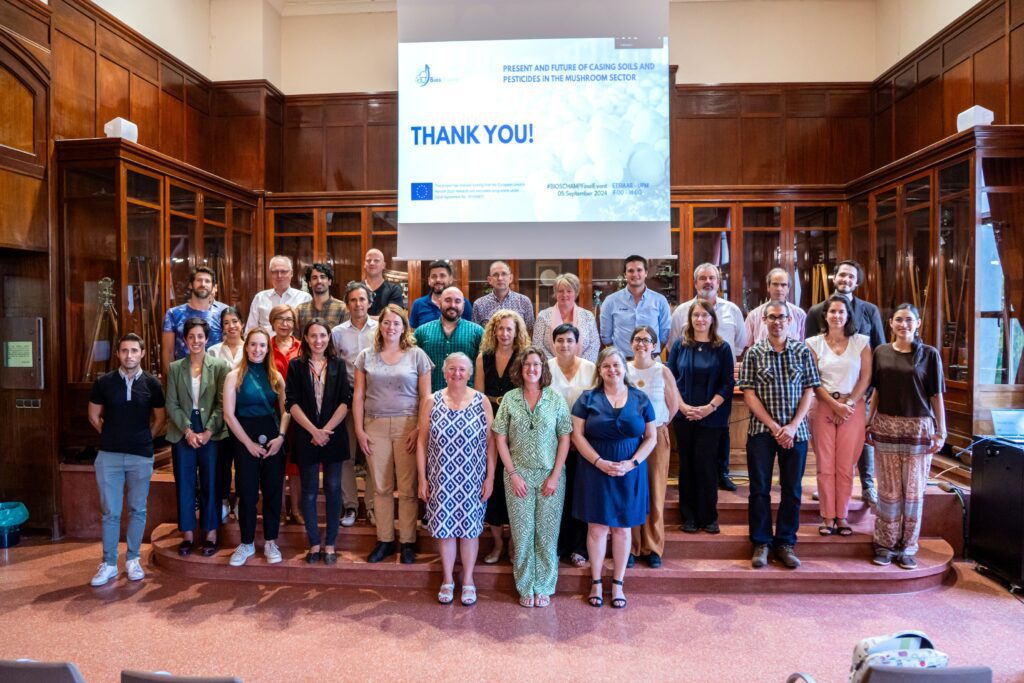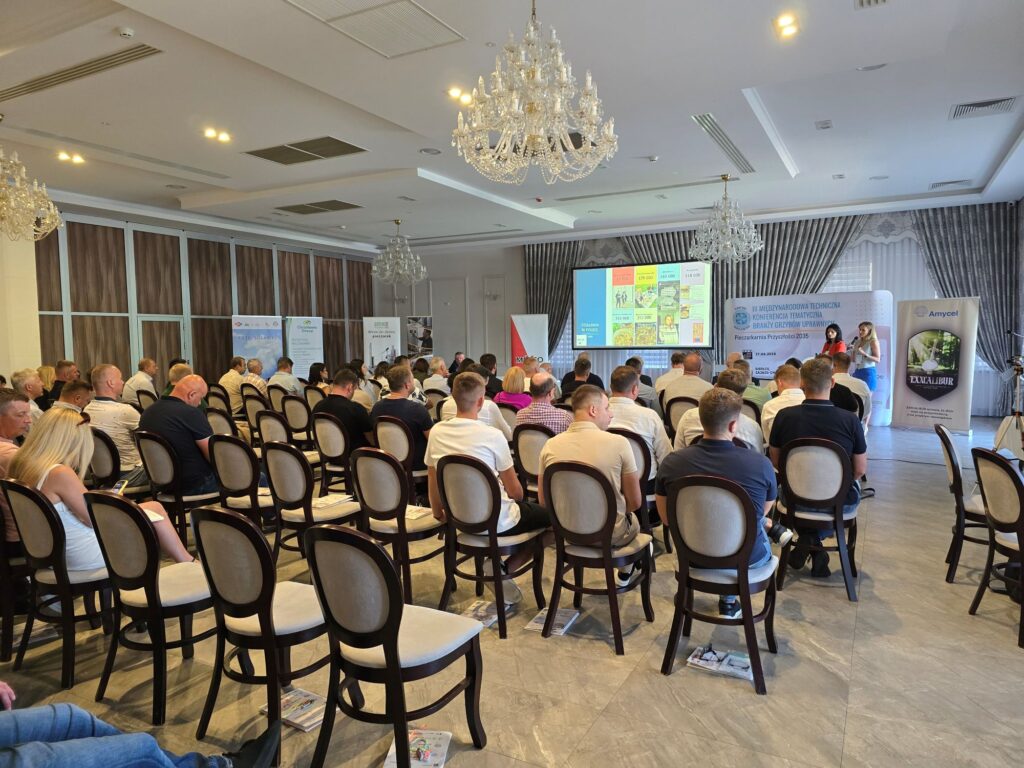
With the beginning of quarantine measures in the Russian Federation, Belarusian champignon producers were in an exceedingly difficult situation. Maksym Yenchenko wrote a very interesting report on the trials and tribulations of the Corona situation in Belarus, beginning of May.
By Maksym Yenchenko. Amycel, UMDIS
Belarus is a small country whose population consumes not more than 25% of the mushroom produced in the country by several large farms. The main customers of Belarusian farms are in the Russian Federation, with which Belarus is in the Customs Union. In recent years, the two largest farms in the country – Bonshe in the Brest region and the Mushroom Country in Baranovichi, have grown significantly in size, and a number of new producers have joined them, in particular the Logal-Bio company in Schuchin and the Fungibel near Orsha.
In total, mushroom production in Belarus is ready to deliver to the market up to 40 thousand tons of white button mushrooms annually, and most of it goes to the Russian market, where Belarusian mushrooms are already well known.
All the leaders of the country’s mushroom industry are large, well-equipped, well-organized enterprises that collect high mushroom crops of excellent quality. The vast majority of farms work on phase III compost, and several farms work on phase IV.
A special feature of the country’s mushroom industry is the lack of compost in its own right – farms operate on composts imported from Poland. Only next year it is planned to open the first compost plant in the country. But the compost plant is planned to be large and will cover more than half of the compost consumption in the country.
Until recently, the rather cloudless existence of mushroom farms was overshadowed only by occasional accusations of re-exporting mushrooms from Poland to Russia, but after inspections and short-term trade restrictions, work continued. However, in the last two years, new fears have arisen associated with the rapid growth in the number of mushroom farms in Russia. The production capacities of Russian mushroom farms from 16 thousand tons per year in 2017 increased to more than 100 thousand tons by the beginning of 2020. Not all farms have worked to their full potential, but the mushroom supply on the Russian market has grown very significantly, which has led to lower prices on the Russian market.
Corona blows
Coronavirus and the quarantine associated with it sharply increased the imbalance between supply and demand, and it became much more difficult to sell mushrooms, especially at the usual high prices.
The Belarusian mushroom industry felt the first blow of the coronavirus when quarantine was announced in Poland in early March. Due to an overabundance of mushrooms in the Polish market, mushrooms began to be exported to Belarus. Unlike the Russian Federation, the Belarusian market is open for Polish mushrooms.
But the big difficulties with sales began when public life was limited in Russia. The sharply reduced demand from the public catering sector and from the market side collapsed demand and prices in the Russian market. At the same time, large new Russian farms for the most part refused to reduce production volumes, even selling mushrooms below cost.
The domestic Belarusian market also sagged strongly. As one of the wholesalers informed us, if in 2019 in the pre-Easter week he sold 12 tons of champignon, then this year only two. Despite the fact that no quarantine has been officially introduced in Belarus, restaurants and catering establishments do not work. Markets also operate in a limited mode. “The Belarusians have developed an instinct for self-preservation,” says the wholesaler. He names two reasons for the fall in his sales in March and the first half of April – decreased domestic demand and mushrooms from Poland. “The Poles simply flooded our market with mushrooms at 1 euro per kg. And on the boxes there were even tags – “intended for industrial processing,” says the wholesaler.
Also, for the first time in history, a mushroom produced in Russia was brought to Belarus and sold on the fresh market. “Wholesalers from Russia brought champignon and offered it to our customers,” said a Belarusian entrepreneur.
To all this was added a significant depreciation of the Russian currency, in which Belarusians receive most of the payments for their products. “The Polish zloty, which we pay for composts, also fell in price, but the fall of the ruble was much more significant,” one of the farmers told us.
Reduction of production
Belarusian mushroom farms had to urgently reduce production volumes – many mushrooms remained unpicked and were steamed with composts. Many mushrooms went for processing. Farms refused a large quantity of composts previously ordered in Poland. And they lowered prices.
In April, the overall decline in mushroom production amounted to about 30 or even more percent. And prices are 30-40% lower than expected.
“We were forced to reduce production in April by 40%,” says Anton Puzhevich, owner of the company Mushroom Country. I had to leave a lot of mushroom on the shelves. Now the situation has leveled off a bit, but the level of production is 25% lower than usual. ” About 110 rubles per kilogram (excluding VAT) are now paid for a good mushroom in the Russian Federation, and delivery and a box are also included in this price, says Anton. It should also be borne in mind that the ruble depreciated significantly in April. Therefore, such a producer price cannot suit.
An additional risk is the coronavirus itself and the associated risks to the manufacturing process. In Belarus, when diagnosing a coronavirus, an enterprise where a person works can be closed. These are additional risks that have stimulated a decline in production.
Vyacheslav Turbin, director of Bonshe’s largest champignon producer in the country, says his company has suffered less than others. “Fortunately, most of our production volumes are contracted with customers with a fixed quantity and price. Therefore, a catastrophe did not happen and now the company sells products at fairly good prices, ”says Vyacheslav. Nevertheless, the farm also had to reduce production, and today it operates at 75% capacity. “The biggest problem is the unoccupied employees. Apparently, by the end of May, if the situation does not improve, we will have to reduce a certain number of workers and pickers, ”Vyacheslav said.
Before the “coronavirus” crisis, two farms were working in Belarus on the compost of Phase 4. And another large farm built for Phase 4 was at the launch stage. The entire compost of Phase 4 came from Poland in containers. Now, they all do not work. “The cost of growing on Phase 4 compost is significantly higher than on Phase 3 compost, although the investment costs are small. And as soon as the price fell – continue to work in Phase 4 lost its meaning. They will not be able to earn by selling mushrooms at 110 rubles (Russian) per kilogram, ”said one of the market participants. According to other information, now there is also no way to buy Phase 4 compost. The Polish Phase 4 compost supplier has temporarily suspended shipments.
Fungibel
The Fungibel company has been operating since 2018 and is the fourth largest in Belarus. “We entered the crisis with empty refrigerators (the whole mushroom was sold“ off-wheels ”), but the first three weeks after the quarantine was announced in the Russian Federation was not easy,” says company founder Vadim Ivanovich. “Sales in retail chains sank 15 percent, and much more from wholesalers. The “bottom” of the market reached somewhere during the period of Catholic Easter. ” But the company did not have to throw away mushrooms. “The previous work on the quality of our product helped us – where our customers had to choose, they chose us,” says Vadim. Also, with the onset of the crisis, the company dramatically increased its marketing activity and sales efforts – it found new customers and tried to improve interaction with existing ones. And today the farm is running at full load. “The situation is difficult and unpleasant, but far from fatal,” Vadim Ivanovich summarizes.
While large enterprises are reducing volumes, a number of small industries had to close. Many of them sold products through major players, but when demand fell, their goods were not needed. Attempts to sell the mushroom on the local market had little effect, and production stopped. Some switched to production on compost Phase II from Ukraine.
50% had to reduce the production of one of the newest companies on the market – Logal-Bio. By production capacity, this company is in the top three largest. A modern enterprise ready to produce mushroom of excellent quality. But in order to reduce risks, before the situation improved, the company decided to reduce production by half. “If until March I received a huge number of calls from potential buyers every day, then the last month and a half is silence,” says Alexander Logvin, director of the company.
Several freezing companies are active in Belarus. And in recent months they have had an unusually large supply of mushroom and orders from mushroom farms. During March-April, hundreds of tons of champignon were frozen. And not only Belarusian production – factories in the country also froze a mushroom from Russia and Ukraine.
Outlook
Since 2017, white button production capacities in Belarus have doubled and significantly exceed domestic consumption. The main market is Russia. But it also recently appeared a large number of major players. Fortunately for Belarusians, they already have strong positions in the Russian market, and being in the Customs Union with Russia almost equalizes their rights and opportunities with Russian competitors. Next year in Belarus a large compost enterprise should start working. After the quarantine is lifted, the production volumes of Belarusian champignon farms should be restored. Although the competition will become increasingly acute, Belarusians are clearly not going to give up.
Photo: Dumped mushrooms, in this case in Italy. Photo: Martin van de Vorle






